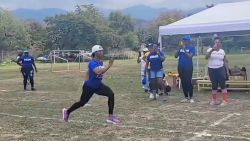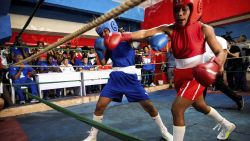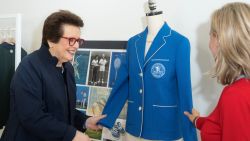An 18-year-old, competing in a historically male-dominated discipline, thousands of miles from home.
Contesting a world final, one-on-one, with thousands watching on in a packed arena and countless more watching virtually.
The outcome? A unanimous victory, of course – meet Logan ‘Logistx’ Edra, the youngest ever winner of Red Bull’s BC One World Final.
With BC One now into its 18th edition, it was perhaps destiny that – given her age – Edra would win 2021’s event, hosted in the Polish portside city of Gdansk earlier this month.
Yet the Filipino-American’s path to the pinnacle was anything but linear. Far from the romantic ‘love at first sight’ tales of many athletes, a young and shy Edra – born and raised in California – had no intention of even attempting breaking when her father first suggested it.
Reluctant roots
Something of a childhood introvert, Edra batted away the idea of breaking – the competitive form of breakdancing – despite her father’s suggestions. Her dad clearly had a skill for spotting talent, as well as some crafty parental skills.
One day, he took his eight-year-old daughter to what she thought would be an afterschool art class, and the rest is history.
“It was like that feeling when you go to a rollercoaster and it’s scary, but you just want to keep doing it for some reason … I always relate it to that feeling because it felt the exact same,” Edra told CNN Sport.
Despite her relative youth, Edra speaks with the confidence and insight of a performer far beyond her years. She is also student of the discipline – raised on a rich and diverse playlist of hip-hop artists and full of admiration for the legends of breaking before her.
Under the tutelage of her father – who breaked “just for fun” in his youth – A Tribe Called Quest, Tupac, Nas, Lauryn Hill and other legendary names of the genre formed the spine of Edra’s musical upbringing as she began her fledgling dance career at a studio in San Diego.
Role models varied from personal mentors of her first crew, Underground Flow – such as b-girl Val Pal – to legendary “OGs” of Ken Swift and pioneering New York breaker Richard “Crazy Legs” Colon.

Just don’t ask her to pick out the greatest of all time. “There’s just so many GOATs,” an exasperated Edra says.
As a professional breaker, she is neither an athlete or an artist: Edra is an amalgamation of both – an “artlete.”
Subsequently, judging and the subsequent GOAT tag is simply a subjective matter of preference. “Where you came from, how you were brought up and what you learned,” Edra explains.
What’s in a name?
The Logistx moniker is a nod to her love of structure and organization
Even from the age of four, she was regularly drawing up her own schedule – cue the name tip from her father, with a slight tweak on the spelling “just to make it cooler!” Edra laughs.
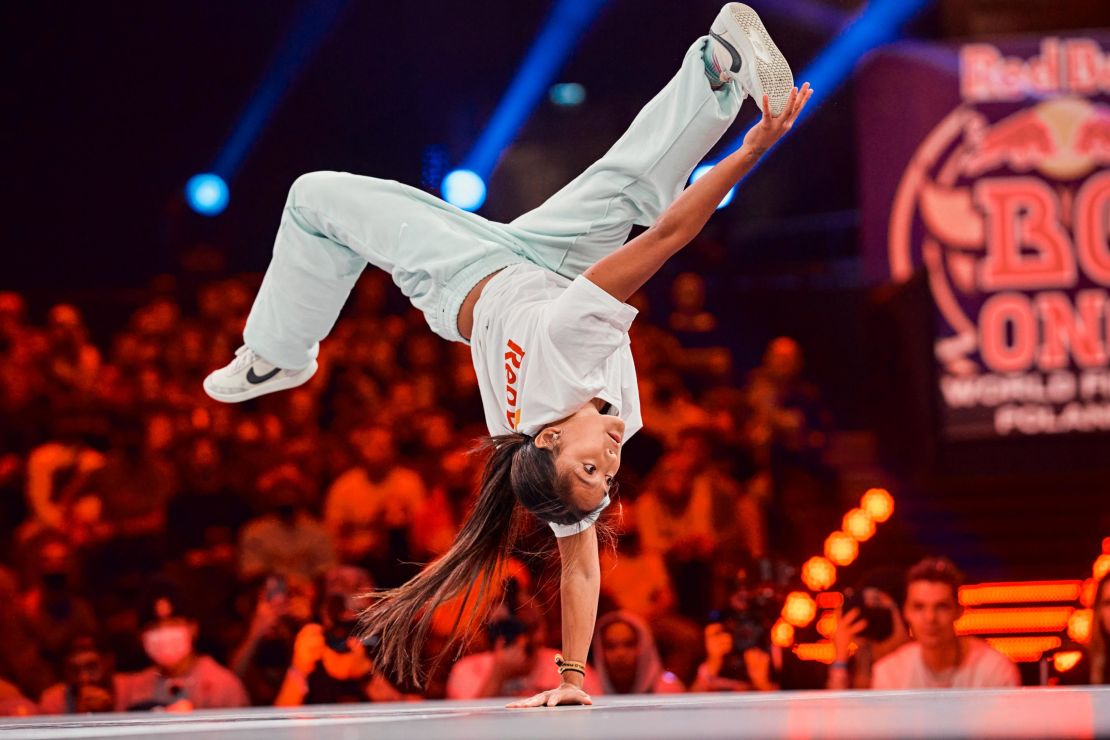
Self-confidence, swagger and posturing are as inherent to breaking as kicking is to football, but Edra is candid about suffering bouts of anxiety – amplified by the isolating restrictions of the pandemic – that she deals with and seeks to unpack with her therapist on a weekly basis.
Even so, after a decade of competition, Edra admits that she “still gets nervous to this day,” which is why she began mentally preparing herself for trip to Poland months in advance.
Three months prior, she had attended a local cypher in Orlando, where the mere sight of a Red Bull logo on the dance floor had triggered a pang of nerves. Edra acknowledged and then addressed the reaction head on, staring at the logo until all negative connotations had dissipated.
‘Game Time’
When she arrived in Gdansk, the restlessness – unusually – fizzled away, a sense of calm and focus made all the more impressive by the fact that she sustained a painful knee injury just days before the competition.
From cranking up the heat in her hotel room to make that small space her “sanctuary” away from home to using visualizing techniques, Edra employed a range of methods to ensure she entered the stage in a hyper-focused state of mind: “Game Time.”
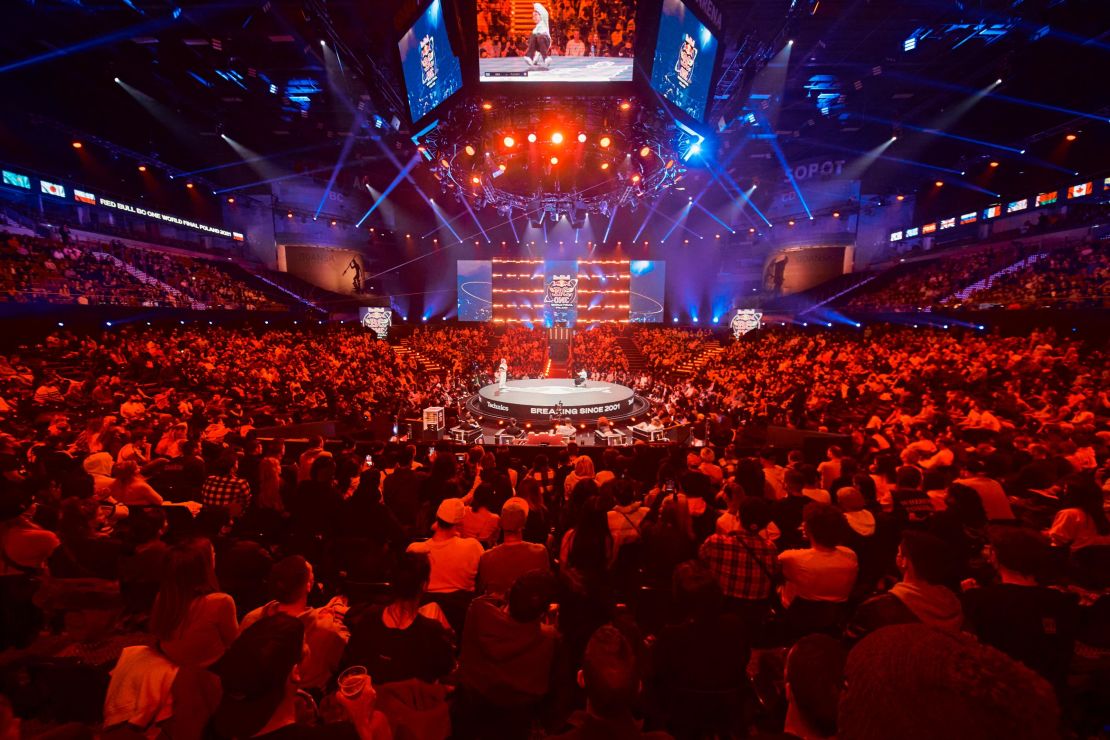
“That was the first time probably ever that I wasn’t jittery and like super, super nervous for a really huge battle like that,” Edra said.
“I knew I was going to win. I already had that in my heart. It’s probably the most confident I’ve ever been in any battle in my life, it’s crazy.”
Nice girls finish last
True to her word, after winning her first two battles, a semifinal victory over Japanese b-girl Ayumi – “one of the best” – teed up a final showdown with b-girl Vavi of Russia.
As a relatively new viewer to the art, it is impossible not to be struck by the similarities to boxing – not merely in the sense of the physical demand, the one-on-one format and a ‘ring-walk’ style walk-out, but also in the behaviors and values of the sport’s performers.
The swagger and braggadocio of the posturing, all the time underpinned by a genuine mutual respect – it is an event that has all the components of a typical fight night.
Edra and Vavi fist-bumped before beginning their battle, and the fact that the BC One World Final winner was presented with a huge, WWE-style belt upon winning only further reinforces the comparison.
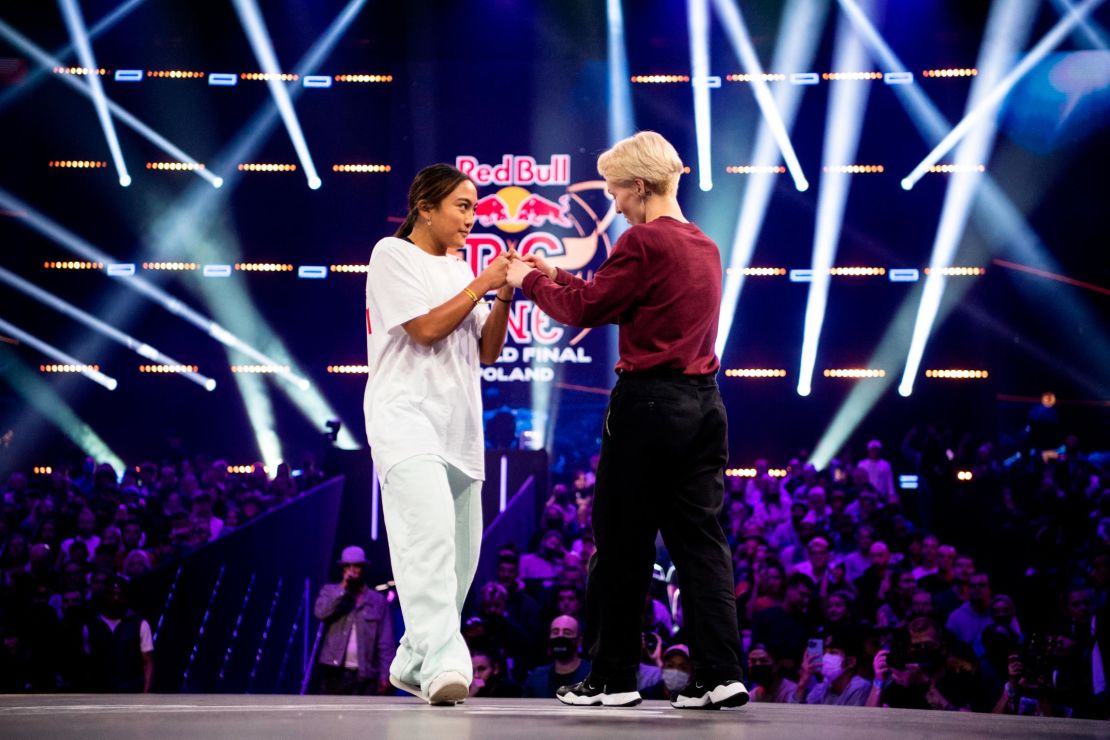
Having grown up being “too nice” in some breaking battles, Edra has worked hard to incorporate the ferociousness and belligerence of Miami-based breakers into her on-stage persona – to become “a completely different, really just not nice, person.”
“It has to be like that because you have to not only convince yourself that you beat them, but you have to convince the crowd and the judges that you’re better,” Edra explains. “So in my mind I’m like, ‘Damn, I could smoke you’ on stage in the battle.
“But once we shake hands, once we hug after the battle, it’s like, ‘OK, I’m cool with this person,’ you have to just let it go … I don’t take it personal. Some people do, but I don’t. I think respect is one of the most important parts about hip-hop.”
Trailblazer
With three straight votes, Edra was crowned a BC One champion without the need for the fourth judge’s input, then sinking to her knees in tears as she was mobbed in congratulations by her fellow breakers.
Her success – BC One’s first US women’s winner, first Filipino-American winner and youngest winner – has only recently begun to sink in. “Wow,” is the word she uses to characterize the accomplishments.
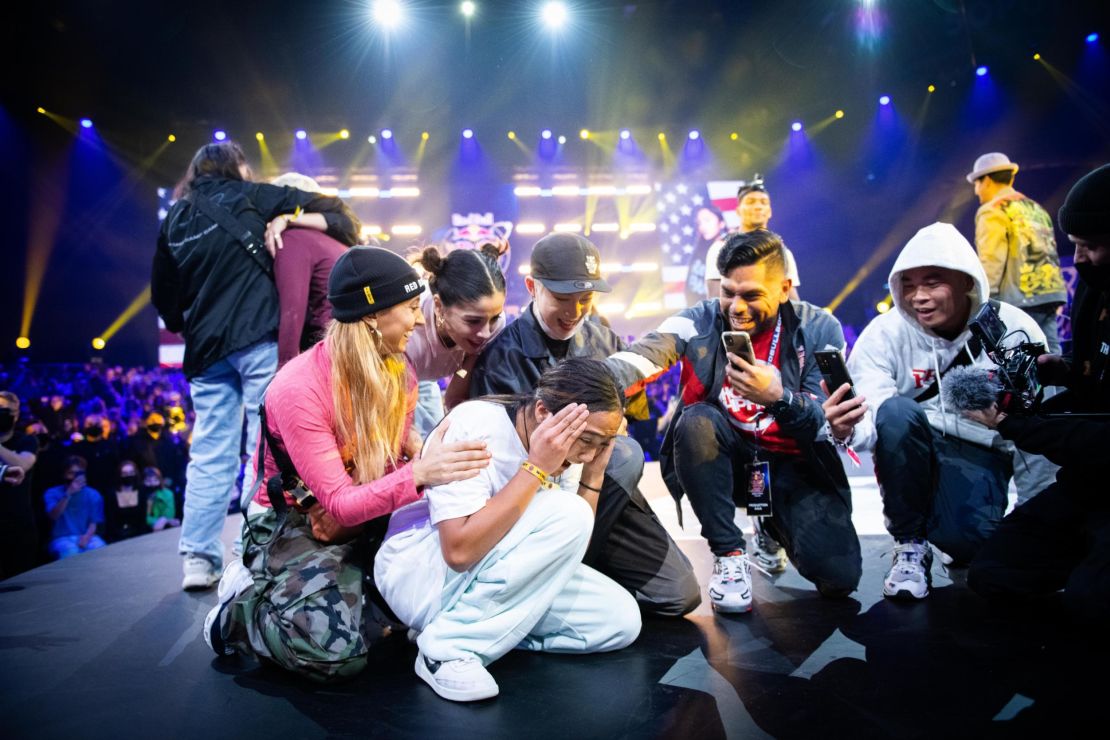
Age is a particular sticking point for Edra because it is a double-edged sword. It comes with the promise of even greater potential and the pride of inspiring other youngsters, but simultaneously, the danger of settling for less.
“If I limit myself to just being good for my age, I don’t think I would have won,” Edra said.
“It doesn’t matter in the sense you can always push more and be the youngest to win something, but it does matter in a sense of it feels really empowering and I hope I inspire other young girls or young artists to be like, ‘Hey, I can accomplish this even though I haven’t been on this Earth for as long as these other people have – it’s still possible.’”
Breaking barriers
Inspiring the next generation of b-girls is a key motivator for Edra, not least because this is a scene historically dominated by men.
She cites American b-girl Beta Rawkuz – one of this year’s BC One judges – as one of her childhood idols. Edra’s admiration is born of Rawkuz’s tenacity in dismantling the art’s gender barriers by consistently battling b-boys.
Now carrying the torch for the next generation, Edra is buoyed by the prospect of a new wave of “still rare” female presence potentially sweeping through hip-hop culture – in both breaking and rap – and what they can add to the scene.
“Go for it, really go for it,” is Edra’s advice to young girl breakers and “hold on to that passion.”
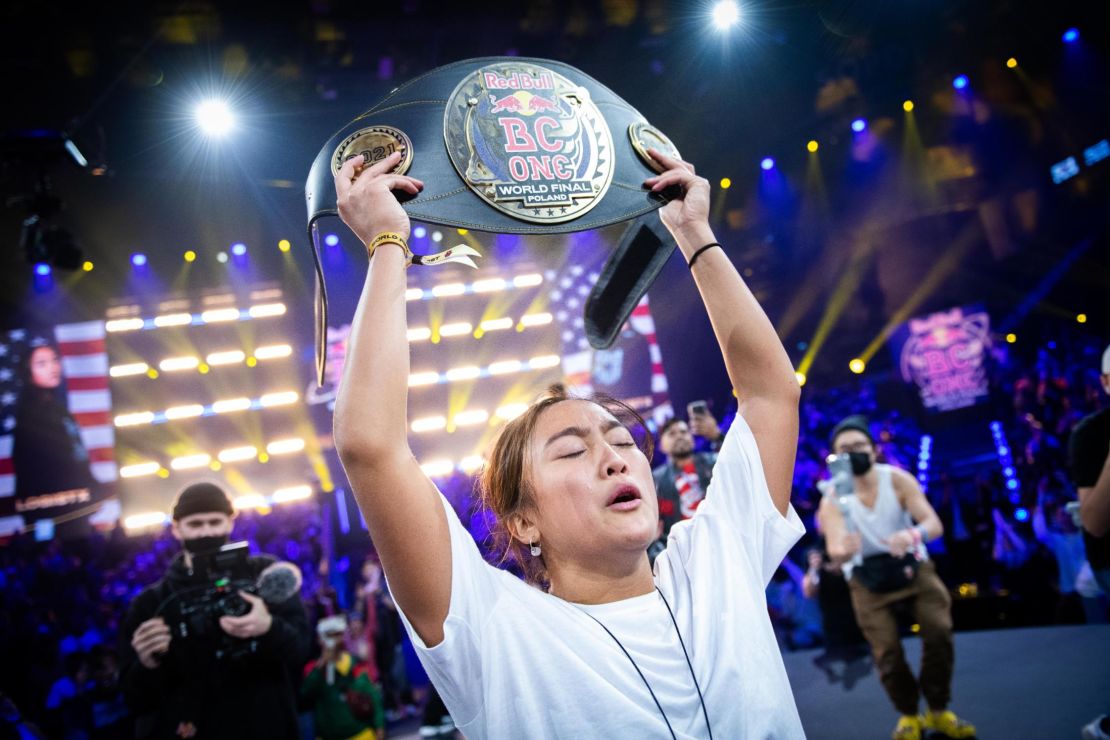
“Don’t be afraid because there’s going to be a lot of things that might make you want to step back. Naturally, we’re women so we can be emotionally sensitive, we can be more on that feminine side. It’s very masculine, it’s a very aggressive dance.
“So we can’t be afraid to be rude or be very rigid with our approach and it’s going to teach us a lot because I think, innately, like females can be more emotional, but it’s also something we bring to the dance.
“We bring in a lot of creativity to the dance. We bring in a lot of fluidity to the dance, so don’t be afraid to be yourself in the dance. Don’t be afraid to learn.”
Going for gold
Having jetted off to another event in Los Angeles just a week after Gdansk, well-earned relaxation and vacation time are the only items on Edra’s upcoming agenda.
Having said that she’s already got her eyes on Paris 2024, where breaking will make its Olympic debut.
Following co-operation with the World DanceSport Federation (WDSF), the International Olympic Commitee announced the addition of competitive breakdancing to the 2024 schedule in December 2020.
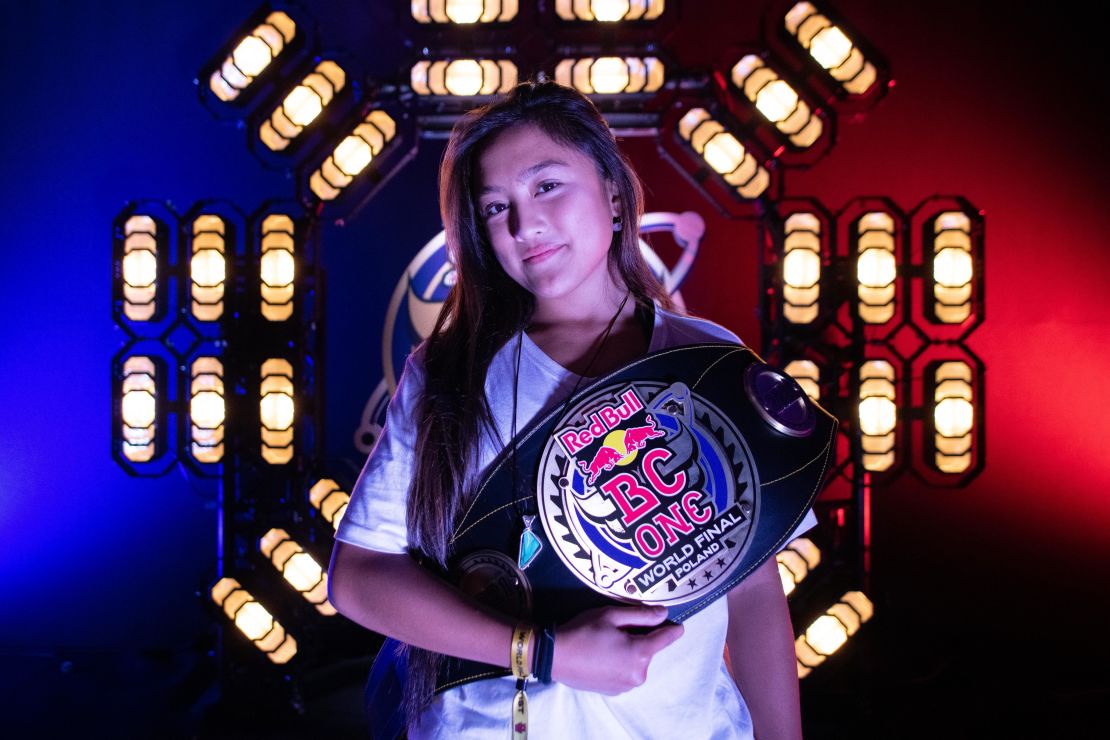
Edra believes the athleticism and physical demands of breaking make it more than worthy of Olympic status and was initially excited by the announcement, though she does wonder how her beloved art will be staged at the world’s biggest sporting event.
Dialogue holds the key, according to Edra, as well as the need for “non-egotistical leadership.” Just as in her own craft, “mutual respect” is paramount.
As for her aspirations for the Games, you already know the answer.
“My plan is to win.”




